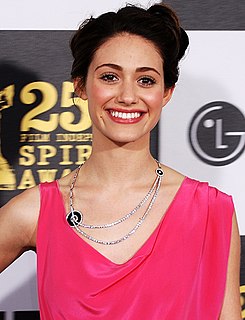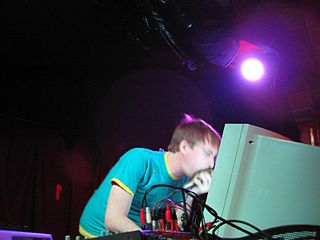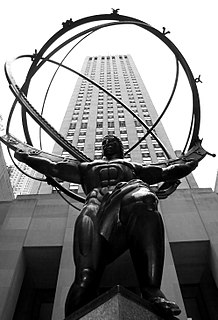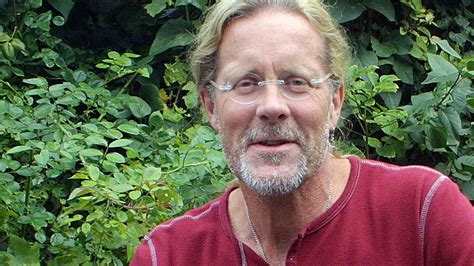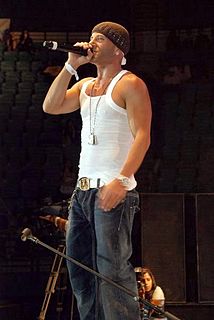A Quote by Tony Kushner
I think that when you're writing plays, and I think it's also true with novels, it helps to have an ear for the music of language, for what we call poetry, for the sound effects and the way that the sound can produce sensual feeling at odds with or consonant with the content of the work. Your work is also gorgeous writing. It's very unfortunate when you open a novel that everybody's loving and it's just, you know, an excruciatingly bad sentence.
Related Quotes
I can work a lot faster when I'm writing a screenplay than when I'm writing a play because, if I'm having a problem with a scene or something, I can just be writing it in a way where there's no dialogue, or find a way to make sound do the work that I want to do or a close-up do the work that I need to do.
Too many times you come across lyrics that sound like you've heard them before or you can't really relate to them. And I think that I write songs that sound fresh and sensual in kind of a layered, lush way. But I also think that they are real, and that's why I wanted to call the record 'Inside Out.'
Everybody has their own approach to songwriting. When you're an electronic musician, the whole writing process just depends. Some people have a very live way of writing electronic music, very improvisational. They set up a lot of gear and do live takes. I'm concerned with having a specific kind of sound. There's not one second that I haven't put thought into. I put almost as much time into my live shows as I do into writing music, but they're two completely different processes. Some people think the way I perform live is how I write songs, which isn't true at all.
A book, at the same time, also has to do with what I call a buzz in the head. It's a certain kind of music that I start hearing. It's the music of the language, but it's also the music of the story. I have to live with that music for a while before I can put any words on the page. I think that's because I have to get my body as much as my mind accustomed to the music of writing that particular book. It really is a mysterious feeling.
There's no really other way to learn writing than by writing. So accelerate that as much as you can. The more you write, the better you'll get. What also helps, though, is walking away from broken stuff. Not everything's going to work. Killing two years of your life trying to resuscitate a dying novel, I don't know. Why not just write a different one? You'll have more ideas. You can't help having ideas.
I collaborated with a brilliant young sound designer named Anthony Mattana, who enriched the sound of the total production with vocal effects, percussive and other sounds. He also mixed the sound effects and the music, using the theater's first rate sound system to complement the theater's acoustics. This completed my score.
The book works better if I know everything I can about the ending. Not just what happens, but how it happens and what the language is; not just the last sentence, but enough of the sentences surrounding that last sentence to know what the tone of voice is. I imagined it as something almost musical. Then you are writing toward something; you know the sound of your voice at the end of the story. That's how you want to sound in those final sentences: the degree that it is uplifting or not, the degree that it is melancholic or not.
Though my poems are about evenly split between traditionally formal work that uses rhyme and meter and classical structure, and work that is freer, I feel that the music of language remains at the core of it all. Sound, rhythm, repetition, compression - these elements of my poetry are also elements of my prose.
It's definitely about the rhythm of the words and how they sound together, writing one sentence and then another and another and cutting something immediately if it doesn't feel true. I come from a family of musicians and - while I have no musical abilities of my own - I think I inherited a good ear.
Think of the sound you make when you let go after holding your breath for a very, very long time. Think of the gladdest sound you know: the sound of dawn on the first day of spring break, the sound of a bottle of Coke opening, the sound of a crowd cheering in your ears because you're coming down to the last part of a race--and you're ahead. Think of the sound of water over stones in a cold stream, and the sound of wind through green trees on a late May afternoon in Central Park. Think of the sound of a bus coming into the station carrying someone you love. Then put all those together.
Music's always part of my writing. I think all art is interconnected. You can't create or experience one without its influences bleeding into another. In my writing, music's mostly something that feeds my inspiration and mood while I'm writing, but it's also taught me how to score scenes and even novels. The rise and fall of the storyline echoes the flow of a good piece of music.
My job on a film is to be responsible for all the sounds in the movie besides the music. Together with my team, we work on the dialogue, foley, sound effects, and sound design. We work closely with the director and picture editor in the prep period, and then together with them, the sound mixers, and music crew, we collaborate on the final mix of the film.
Objectifying your own novel while writing it never really helps. Instead, I guess while you're writing you need to think: This is the novel I want to write. And when you're done you need to think: This is what the novel I wanted to write feels like and reads like and looks like. Other people might call it sweeping or small, but it's the book you chose.
Trying to make your own sound is hard. When I was producing for other artists, I could just produce and write songs as a normal songwriter, and almost make them generic. The artists themselves, whoever is singing that song, can put their own twist on it. When it came to my own material, I had to really dig deep, because I was just writing generic stuff. It sounded like everybody else, like Justin Timberlake, like Usher. I never wanted to sound like someone, that's when you know it's not going to work.


